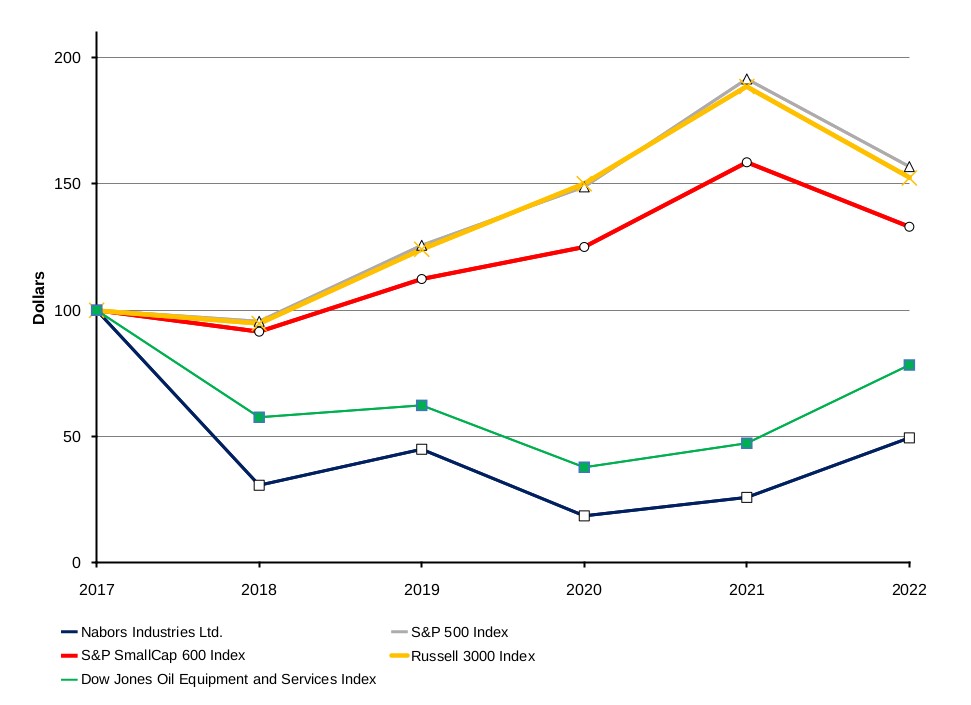Failure to realize the anticipated benefits of acquisitions, divestitures, investments, joint ventures and other strategic transactions may adversely affect our business, results of operations and financial position.
We undertake from time to time acquisitions, divestitures, investments, joint ventures, alliances and other strategic transactions that we expect to further our business objectives. For example, in October 2016, we announced an agreement to form a new joint venture in the Kingdom of Saudi Arabia, which commenced operations in December 2017. The long-term success of the Saudi joint venture depends, to a large degree, on the satisfactory performance of our joint venture partner’s obligations, including contributions of capital, drilling rigs and related equipment, and our ability to maintain an effective, working relationship with our joint venture partner.
We also completed the acquisition of Tesco in December 2017. We have been unable to obtain regulatory approvals to recognize our acquisition of the Tesco subsidiary in Russia.
The anticipated benefits of the Saudi joint venture, the Tesco acquisition, and other strategic transactions may not be fully realized, or may be realized more slowly than expected, and may result in operational and financial consequences, including, but not limited to, the loss of key customers, suppliers or employees, or the disposition of certain assets or operations, which may have an adverse effect on our business, financial condition and results of operations.
Decisions by internet service, cloud host service and related providers to restrict or ban our ability to use their platforms could adversely affect our ability to promote and conduct our business and inform investors.
We utilize the internet to provide services and to promote our business and services to current and potential customers and to provide information and updates to our investors. Internet service providers, cloud hosting services, social media companies and website providers that currently allow us to utilize their platforms to communicate with customers and the public may decide that our business or the industry in which we operate negatively affects their business or may make business decisions or changes to their policies that negatively affect us. Such actions could include placing restrictions on our use of their platforms or banning us from utilizing their services altogether. Our inability to use these platforms may have a negative effect on the way we are perceived in the industry or in the media and may adversely affect our business, financial condition, results of operations and cash flows.
Failure to effectively and timely address the energy transition could adversely affect our business, financial condition, results of operations, cash flows and share price.
Our long-term success depends on our ability to effectively address the energy transition, which will require adapting our business to potentially changing government requirements and customer and investor preferences, as well as engaging with our customers to develop solutions to decarbonize oil and gas operations. If the energy transition occurs faster than anticipated or in a manner that we do not anticipate, demand for our products and services could be adversely affected. Furthermore, if we fail or are perceived to not effectively implement an energy transition strategy, or if investors or financial institutions shift funding away from companies in fossil fuel-related industries, our access to capital or the market for our securities could be negatively impacted.
Our aspirations, goals and initiatives related to sustainability and emissions reduction, and our public statements and disclosures regarding them, expose us to risks.
We have developed, and will continue to develop and set, goals, targets, or other objectives related to sustainability matters. Statements related to these goals, targets and objectives reflect our current plans and do not constitute a guarantee that they will be achieved. Our efforts to research, establish, accomplish, and accurately report on these goals, targets, and objectives expose us to numerous operational, reputational, financial, legal, and other risks. Our ability to achieve any stated goal, target, or objective, including with respect to emissions reduction, is subject to numerous factors and conditions, some of which are outside of our control. Some factors include, but are not limited to, (i) the extent to which our customers' decisions directly impact, relate to, or influence the use of our equipment that creates the emissions we report, (ii) the availability and cost of low- or non-carbon-based energy sources and technologies, (ii) evolving regulatory requirements affecting sustainability standards or disclosures, and (iv) the availability of suppliers that can meet our sustainability and other standards. In addition, standards for tracking and reporting on sustainability matters, including climate-related matters, have not been harmonized and continue to evolve. Our processes and controls for reporting sustainability matters may not always comply with evolving and disparate standards for identifying, measuring, and reporting such metrics, including sustainability-related disclosures that may be required of public
